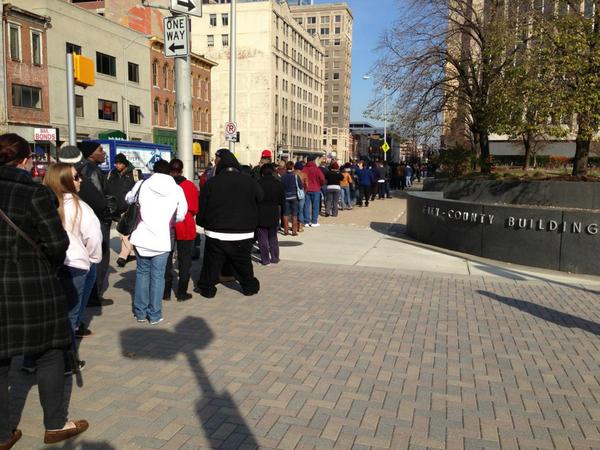- appoint and dismiss chief constables
- set out a five-year police and crime plan
- determine local policing priorities
Teresa May has claimed that they will 'be a voice for local people'. Perhaps, perhaps not. However, there is a real concern that their democratic role will be undermined by low turnout. So what could have been done?
Ways increase turnout - lessons from academic research
Low turnout is a problem because elected Commissioners may not be representative of broader public opinion. It also reduces the legitimacy of Commissioners and perhaps their effectiveness too.
In some senses, low turnout would not be a surprise because voter turnout is generally lower in 'second order' and 'third order' elections. Citizens vote in elections that they consider to be more important, such as general elections. Turnout would probably have been low, whatever.
However, based on established academic research government could have done much more to avoid low turnout. It could have:
- Hold the election at the weekend, not a Thursday. Why?
- Some democracies hold elections at weekends and research suggests that this helps turnout.
- Better still, allow voting over several days. Why?
- As the US election showed, many US states allow voting weeks in advance. Why not allow voting to take place over several days? Research shows how this can improve turnout.
- Provide more information about candidates. Why?
- As I said before, research shows that providing free-post leaflets to candidates helps boost turnout. The government decided against this and instead set up a website. This is problematic because a significant amount of the UK still doesn't have internet access. A telephone line for the public has been set up, but it has received criticisms.
- Hold the elections in May. Why?
- November is a bad time for electoral officials who are busy updating the electoral register. This means that they their resources are drained and they cannot invest in public awareness activities, as they might at other points in the year. I interviewed many electoral administrators and they were concerned about a November election.
- More importantly, research shows that combining elections can help boost turnout. If elections were combined with local or other elections in May, turnout might have been much higher. Ideally, combine it with a general election.
- There have been some claims that November's 'early and dark nights' reduce turnout, I'm not aware of any research that demonstrates this. But please correct me if I'm wrong.
- Plan better.
- Research shows that errors made in the way that elections are run, voters' interactions with poll workers etc., can undermine confidence. The Electoral Commission issued some early warnings that planning had not progressed sufficiently at the earlier stages. There are some reports of leaflets not being delivered on time, problems with the telephone helpful for voters and confusion about who can and cannot be a candidate. Some teething problems are inevitable, but they might have been avoided, and won't help turnout and public trust.
Electing Commissioners on the Cheap
The bottom line seems to be that the election could have been improved if more was spent on running it. Understandably, the government will be keen to keep costs down. Primarily, they will be concerned about arguments from the Labour Party that the money spent on the election could have been spent on more police officers.
However, if we are to have PCCs then it is important that they are not elected on the cheap. It undermines the eventual Commissioners, it undermines the police, and it undermines democracy



